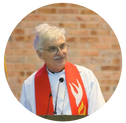|
QUESTION 1. What Cultural issues were considered when drafting the Human Sexuality; Gift and Trust statement? This question is a result of understanding that we live in a world that has been sexualized. I believe that several expressions of our gender and sexual identity are part of this conversation, whether or not we acknowledge it. The recognition that many issues are on the table invites each of us to name them specifically, while doing the hard work which will help us respond in healthy ways to the whole challenge. RESPONSE: The issues considered are those addressed in the statement; a broad range: affirming marriage, recognizing the growth of cohabitation but not endorsing it, real concern about the protection of children, etc. Nothing yet on same sex marriage, a recognition of our differences over scripture and tradition on homosexuality but an affirmation of acceptance in Christ QUESTION 2. What biblical principles were primary in the writing of this document? As Lutherans, we always start with the Word of God. Being able to reach out to everyone in Christ centered love is our common goal. The church wide discussions about this statement are an extension of an invitation to live into the New Creation. Recognizing our roots and acknowledging them is healthy. RESPONSE: The overall concern was a sexual ethic based on Jesus' love commandment under the guidance of Galatians and Luther's Treatise on Christian Liberty, a Lutheran Law-Gospel perspective that recognizes the reality of sin but the positive possibilities of grace in an ambiguous and complex world. Emphasis was placed on the importance of trust and the power of love to create trust as foundational to healthy relationships in general and sexual relationships in particular. QUESTION 3. What has your experience taught you to consider on the question of congregational votes about same gender issues? To vote or not to vote is an issue that we will tackle as a community. It is my understanding that congregations do quite well in discussions and agree to disagree until it is time to vote and the gloves come off. I want everyone to feel heard, with as little discord as possible. RESPONSE: I actually have little experience with congregational votes on gender except that working toward greater consensus and entrusting the leadership is superior to votes. On the other hand, there will be those acculturated to voting who would find it unacceptable not to vote. However, drafting a statement for the congregation recognizing differences but emphasizing the unity we share in Christ and the trust we have in pastoral leadership to discern and decide as same sex marriage cases arise might suffice instead of a vote. QUESTION 4. Please share any philosophical points relevant to the above three questions. We live in a time where information is accessible and helpful. I like this quote. “We shall not cease from exploration and the end of all our exploring will be to end up where we started and know the place for the first time.” –T.S. Eliot The disorder of God’s Creation is overwhelming at times. It feels good to know that I’m part of the Ascension community where we are committed to serving God. RESPONSE: The overall concern was with the concept of sexual ethic based on Jesus' love commandment under the guidance of Galatians and Luther's Treatise on Christian Liberty, a Lutheran Law-Gospel perspective that recognizes the reality of sin but the positive possibilities of grace in an ambiguous and complex world. Emphasis was placed on the importance of trust and the power of love to create trust as foundational to healthy relationships in general and sexual relationships in particular. QUESTION 5. What is your relationship with the book Song of Solomon? During our time with Dr. Childs, he mentioned this text several times. I believe that the grace filled and sacred intimacies which exist in this community are captured in the poetry and prose of this book. There is something to be said about the length of marriages, people reading one another’s thoughts, the spiritual power radiated in a smile, the Christ centered commitments people share and the erotic space filled through our vulnerabilities stepped into because of our faith in God’s Word. RESPONSE: I have no relationship to Song of Solomon other than having read it and recognized what people have recognized for centuries that it affirms erotic love in rich poetic expression. Not surprising since our sexuality is part of God's good creation. “LIVING IN THE TENSION” INCLUDES BEING ABLE TO DISTINGUISH BETWEEN CHANGE AND TRANSITION. Change: An event that is situational and external to us. Occurs when something old stops and something new starts. The change may be a work, or life, event, such as a new job, a new child, a new relationship, a geographic move, someone leaving your church, someone joining your church, the completion of a project, a merger or downsizing, or the announcement of a new policy. Transition: The experience of the gradual, psychological reorientation process that happens inside of us as we respond and adapt to the external change. Transition often results from a change, but it may also be triggered by the news that a change is imminent and, so, start before the change actually takes place. “The beginning of wisdom is to call things by their right names.” -Chinese Proverb Adapted from Transition work of William Bridges, PH.D. In Christ, - Dale Linder, Vicar FEBRUARY SCRIPTURE READINGS
Luke 9:28-43a Matthew 6:1-6, 16-21 Luke 4:1-13 Luke 13:31-35 Luke 13:1-9
0 Comments
Leave a Reply. |
AuthorsPastor Tim Vicar Kimberly
Categories
All
Archives
April 2020
|
|
Find Us
|




 RSS Feed
RSS Feed